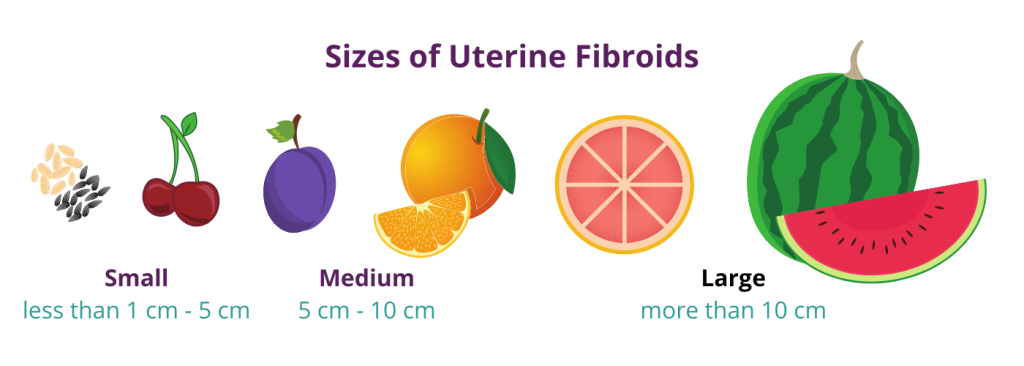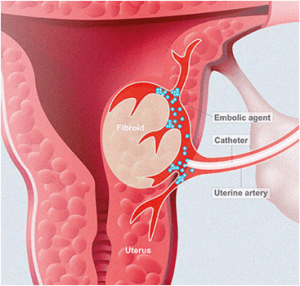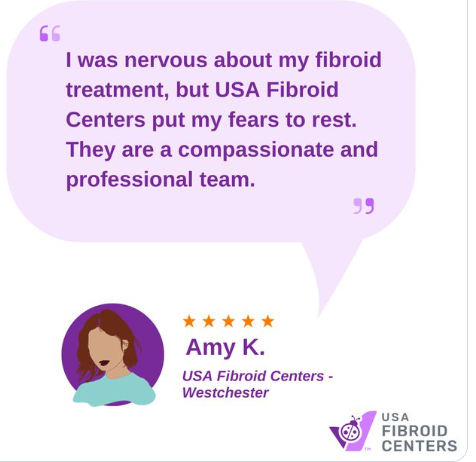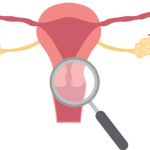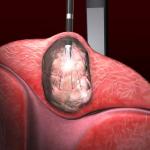If you are concerned about losing weight because you have fibroids, you know it can be challenging. Still, it is certainly possible with a combination of appropriate strategies and lifestyle changes.
Uterine fibroids, which are benign tumors, do not typically directly cause weight gain but, depending on their size, can contribute to additional weight and uncomfortable symptoms. If large, they may contribute to the appearance of a stomach bulge or bloating due to their potential to cause abdominal distention and discomfort.
Some women with fibroids might experience changes in their appetite or eating habits, which could indirectly influence weight. Hormonal imbalances associated with fibroids might lead to water retention, which can act as a sensation of weight gain.
Weight Loss With Fibroids

Remember that individual responses can vary, and it’s important to prioritize overall well-being and health throughout your weight loss journey and to consult with a fibroid specialist if you have questions.
An enlarged uterus, bloating or protruding stomach can be a symptom of fibroids, especially if it is accompanied by other symptoms such as heavy menstrual bleeding, pelvic pain, and bloating. Fibroids are noncancerous tumors that grow in the uterus. They can be small, but they can also grow to be quite large. When fibroids grow large, they can cause the uterus to enlarge, which can lead to a protruding stomach.
If you have a protruding stomach and you are experiencing other fibroid symptoms, it is important to see your doctor. They can diagnose fibroids and recommend a treatment plan.
The Impact of Fibroid Size
Fibroids are often so tiny they are imperceptible. When they are small, they don’t add additional weight. When fibroids grow to larger sizes, they often cause the abdomen to swell and become distended. Typically, fibroids don’t cause weight gain. However, very large fibroids can weigh several pounds and even push on other organs.
Fibroid Diagnosis and Treatment
If fibroids are small and aren’t causing any problems your physician may want to monitor your condition. Although not generally considered dangerous, they can cause harm to surrounding organs, including the bladder and bowels. Fibroids can also impact fertility and cause a range of painful and uncomfortable symptoms. When these symptoms that disrupt daily life it is time to consider treatment options. A diagnosis of uterine fibroids can lead to questions about treatment.
The most common treatments involve surgery to either remove the fibroids or a hysterectomy. However, non-surgical uterine fibroid embolization (UFE) is available that gets rid of fibroids while keeping the uterus and ovaries intact. This minimally invasive treatment blocks the blood supply to the fibroid so that the tumor eventually dies and symptoms reduce or resolve completely.
Benefits of UFE
Uterine fibroid embolization (UFE) is a minimally invasive procedure that treats fibroids by blocking the blood supply to them. This causes the fibroids to shrink and die over time. UFE has a number of benefits over hysterectomy and other fibroid surgeries, including:
- Preserves the uterus. UFE does not require the removal of the uterus, which means that women can still bear children after the procedure.
- Less invasive than surgery. UFE is performed through a small incision in the groin, and no major incisions are required. This results in less pain and scarring, and a faster recovery time.
- Lower risk of complications. UFE has a lower risk of complications than surgery, such as bleeding, infection, and damage to surrounding organs.
- Shorter recovery time. Most women are able to return to their normal activities within a week or two of UFE.
Other benefits of UFE include:
- Does not require general anesthesia. UFE is typically performed under sedation, which means that women are awake but relaxed during the procedure.
- Does not affect hormones. UFE does not remove the ovaries, so women do not experience the hormonal changes that can occur after hysterectomy.
- Can be used to treat multiple fibroids. UFE can be used to treat multiple fibroids of all sizes, including those that are difficult to reach with surgery.
Overall, UFE is a safe and effective treatment for fibroids that offers a number of benefits over hysterectomy and other fibroid surgeries.
Our fibroid doctors will answer all of your questions about diagnosis and treatment. We want to help you make the decision that is best for you. Schedule a consultation online.
Works Cited:

